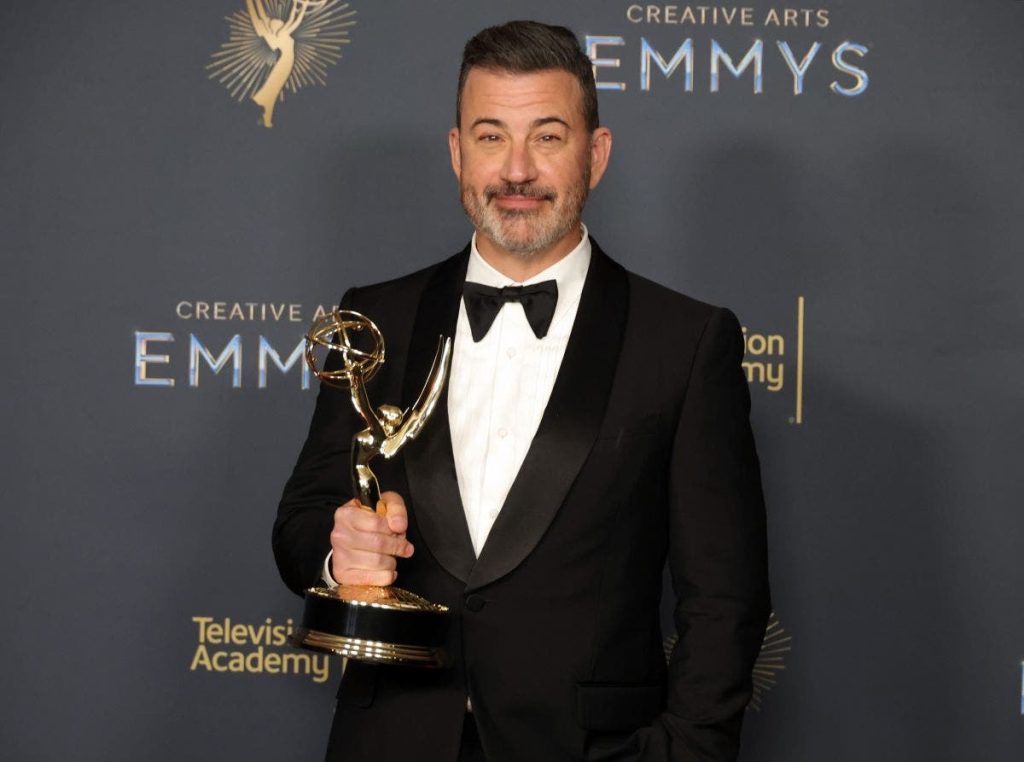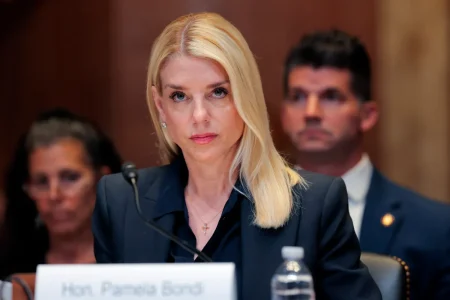Jimmy Kimmel Returns to Late-Night, Addresses Charlie Kirk’s Widow After Suspension
Jimmy Kimmel returned to ABC’s “Jimmy Kimmel Live!” on Tuesday night after a weeklong suspension, using his comeback monologue to address the controversy surrounding his comments following the assassination of conservative activist Charlie Kirk. The late-night host specifically spoke about Kirk’s widow, Erika, expressing admiration for her grace in the face of tragedy. This return marks a pivotal moment in the ongoing national conversation about free speech, media influence, and the boundaries of televised commentary in America’s increasingly polarized political landscape.
The suspension that sidelined Kimmel came after his remarks following Kirk’s assassination, which ignited fierce debate over censorship and political pressure on broadcasters. Kirk, only 31 years old at the time of his death, had established himself as a prominent voice in the MAGA movement, particularly among younger conservatives. As a staunch supporter of former President Donald Trump, Kirk had built a significant following through social media platforms where he engaged younger audiences on topics ranging from culture wars and foreign policy to religion and conservative values. His sudden and violent death sent shockwaves through political circles, with the controversy around Kimmel’s response adding another layer to an already tragic situation.
In his return monologue, Kimmel took a notably conciliatory tone, clarifying his position on the suspect in Kirk’s killing. “I do not think that the suspect represents anyone,” Kimmel stated, describing the alleged shooter as “a sick person who believed violence was a solution.” Most significantly, Kimmel directly addressed Erika Kirk’s response to her husband’s killing, praising her capacity for forgiveness as “an example we should follow.” He continued with a heartfelt observation: “If you believe in the teachings of Jesus as I do, there it was. That’s it, a selfless act of grace, forgiveness from a grieving widow, that touched me deeply. And I hope it touches many and if there’s anything we should take from this tragedy to carry forward, I hope it can be that and not this.” This pivot to emphasizing forgiveness represented a marked shift from the controversy that had enveloped the host following his earlier comments.
Despite Kimmel’s return to ABC, the fallout from the controversy continues to affect his show’s distribution. Major media groups including Sinclair Broadcast Group and Nexstar Media Group, which own multiple ABC local affiliates across the country, initially pulled Kimmel’s program from their stations and continued to preempt the show even after his return. Sinclair issued a statement indicating that “Discussions with ABC are ongoing as we evaluate the show’s potential return,” suggesting that the reputational concerns around Kimmel’s comments remain unresolved for some broadcast partners. This limited distribution means that despite ABC’s decision to bring Kimmel back, his show remains inaccessible to viewers in regions where these major affiliate groups operate, effectively reducing his audience and potentially his cultural influence.
The controversy has predictably drawn reaction from former President Trump, who took to Truth Social to express his displeasure with ABC’s decision to reinstate Kimmel. In a characteristically pointed message, Trump wrote: “I can’t believe ABC Fake News gave Jimmy Kimmel his job back. The White House was told by ABC that his Show was cancelled! Something happened between then and now because his audience is GONE, and his ‘talent’ was never there.” Trump went on to accuse Kimmel of being “another arm of the DNC” and suggested that ABC’s support for the host might constitute “a major Illegal Campaign Contribution,” even hinting at potential legal action by adding, “I think we’re going to test ABC out on this.” This response underscores how deeply intertwined entertainment media has become with political discourse in America, with late-night comedy now regularly triggering responses from the highest levels of political leadership.
As “Jimmy Kimmel Live!” resumes regular programming, the episode highlights the complex tensions that exist in American media between free expression, corporate interests, and political sensitivities. Kimmel’s suspension and subsequent return reflect the difficult balancing act that networks face when their talent becomes embroiled in political controversies. For viewers, the experience varies dramatically based on geography, as those in markets served by Sinclair and Nexstar affiliates continue to see alternative programming in Kimmel’s time slot. This fragmented audience experience mirrors the broader fragmentation in American media consumption, where even nationally broadcast content can be filtered through regional or ideological lenses. The developing situation around Kimmel’s show serves as a microcosm of larger questions about speech, forgiveness, and the role of entertainment in political discourse that continue to challenge American society.















